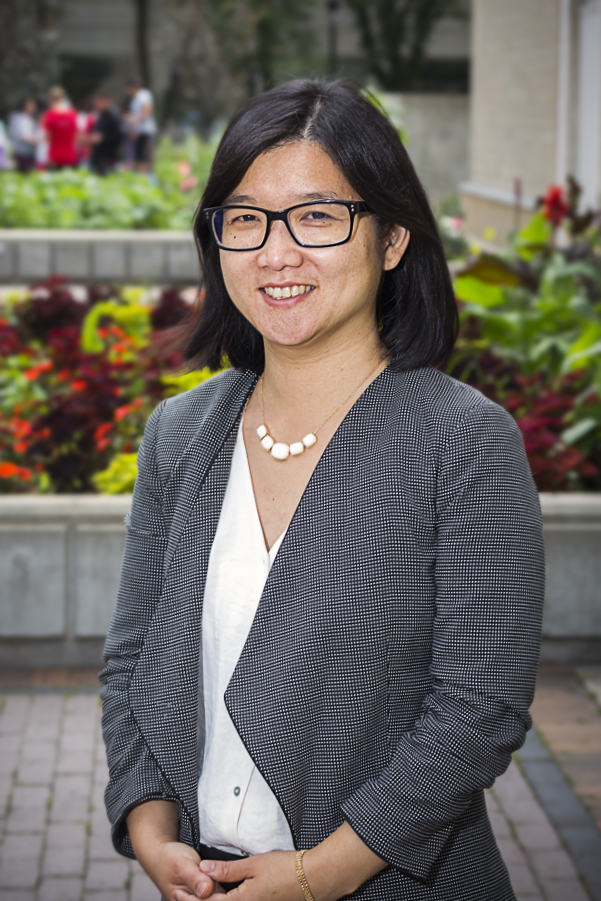
Yoon researched school choice from her undergrad through to her post-doc studies.
New Member, Dr. Ee Seul Yoon
Research Focused on School Choice
The Faculty of Education, University of Manitoba welcomed Dr. Ee-Seul Yoon, who joined the Department of Educational Administration, Foundations and Psychology (EAF&P) as assistant professor in July 2016.
Originally from South Korea, Yoon comes to the faculty from the Department of Educational Policy, Organization and Leadership at the University of Illinois at Urbana-Champaign, where she served as an SSHRCC-funded post-doctoral fellow.
Yoon was attracted by University of Manitoba’s leadership and the faculty’s vision for trying to bring more social justice and equity into the education system.
“There is a vision at the U of M, especially in the Faculty of Education with its diversity admissions policy, to focus on making the education system a thriving place for every kid—not just for elite families or those who can afford it,” Yoon said. “At this kind of institution, there is really the kind of space and support for the kind of research that I would like to do.”
Yoon’s research focuses on school choice, stemming from her undergrad research into student academic outcomes some 10 years ago with the introduction of charter schools in Alberta.
“It was really good experience for me because it was real-life application of my research skills. I also felt that my research had something to say about that issue because … My data actually showed certain outcomes coming out of that policy,” Yoon says, adding that her research concluded that charter schools “cream skim” the best and brightest students based on the belief that attending a charter school can improve students’ performance on standardized tests and other outcomes, compared with attending a traditional public school.
“Students who attend charter schools tend to be high-achievers from wealthy, well-educated families who want more choice in schools,” Yoon said.
Buoyed by the significance of her findings, Yoon pursued graduate school with the support and encouragement of her professors.
“In the next project, I wanted to see more of the human side—the experiences of going to a school that’s not assigned to you. That was my PhD project: What do students have to say about their experiences of going to school that’s different from their neighbourhood school?”
Yoon interviewed Grade 7, 8 and 12 students, asking them how they viewed their school choices and the kinds of programs they were interested in. She found students accepted into the programs feel as if they are high-achievers, establishing early on a sense of an elite identity.
“By the end of Grade 12, they recognize that their credentials are likely higher than regular high school diplomas. And they have an easier time getting scholarships and early admissions into top universities,” Yoon said, adding that anecdotally, these same students often go on to attend Ivy League schools and the top schools in Europe.
“The schools are very selective and the students become the new elites.”
In her PhD project, she also researched challenges faced by students from marginalized communities.
“This is a phenomenon that you see everywhere in major cities—where public schools in affluent neighbourhoods tend to attract students from outside the community.”
In Vancouver, Yoon found a number of racialized minority students, high achievers in their neighbourhood schools, were selected for specialized programs in schools located far from home in predominantly white, middle-class neighbourhoods.
“They are feeling out of place and not fitting in, socially,” Yoon said, adding that racism is contributes to the alienation of students.
Another finding of her PhD research revealed students will typically avoid schools with specialized programs located in what are perceived by families to be unsafe neighbourhoods.
“It was a very eye-opening experience for me—from just looking at academic achievement—to see how choosing schools is deeply connected to social, racial and urban geography,” Yoon said.
In her post-doctoral work at the University of Illinois at Urbana-Champagne, Yoon mapped out school choice using elementary and secondary “student-level data” from Toronto and Vancouver public school boards.
Based on interviews with 20 families in Toronto as well as 20 in Vancouver, Yoon found that students from low-income families are less likely to participate in school choice. And even when they choose to go outside the boundaries of their school division, the distance they travel is shorter than for higher-income students.
Low-income families tend to choose another public school, whereas high-income families tend to choose specialized programs.
In reflecting on the body of research, Yoon concludes that the charter school system most benefits students who are already advantaged—both academically and economically.
“So the question is: How can we reshape policies so they benefit the entire population, and not just a small segment,” she says.
For her next research project, Yoon plans to conduct a cross-national study, looking at school choice across the country.
Courses she will be teaching include Canadian school systems, introduction to education research and recent developments in education administration. Yoon will also be serving on an ethics review committee.
“I am very excited about it,” she says.






